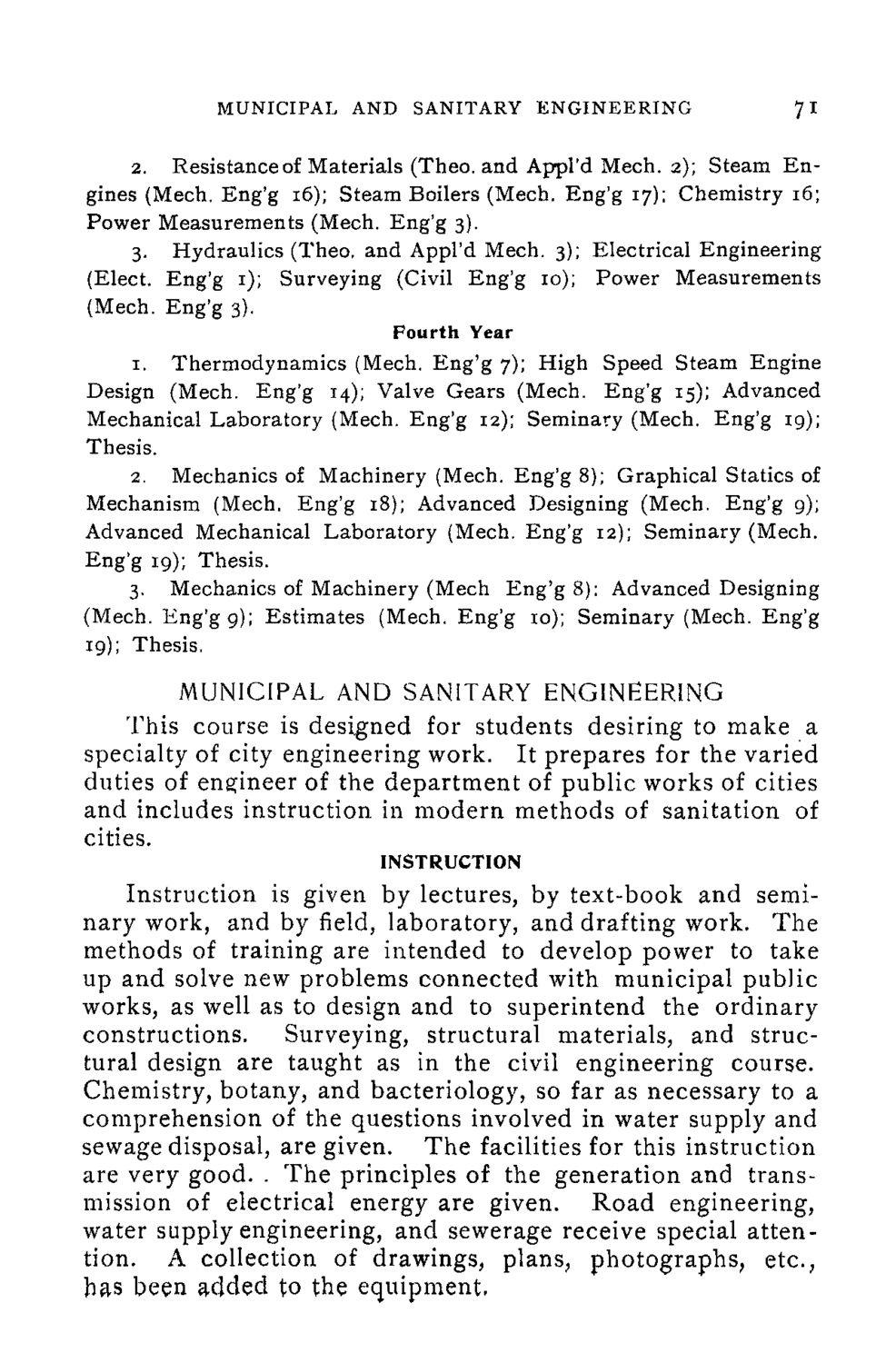| |
| |
Caption: Course Catalog - 1896-1897
This is a reduced-resolution page image for fast online browsing.

EXTRACTED TEXT FROM PAGE:
MUNICIPAL AND SANITARY ENGINEERING 7I 2. Resistance of Materials (Theo. and Appl'd Mech. 2); Steam Engines (Mech. Eng'g 16); Steam Boilers (Mech. Eng'g 17); Chemistry 16; Power Measurements (Mech. Eng'g 3). 3. Hydraulics (Theo. and Appl'd Mech. 3); Electrical Engineering (Elect. Eng'g 1); Surveying (Civil Eng'g 10); Power Measurements (Mech. Eng'g 3). Fourth Year 1. Thermodynamics (Mech. Eng'g 7); High Speed Steam Engine Design (Mech. Eng'g 14); Valve Gears (Mech. Eng'g 15); Advanced Mechanical Laboratory (Mech. Eng'g 12); Seminary (Mech. Eng'g 19); Thesis. 2. Mechanics of Machinery (Mech. Eng'g 8); Graphical Statics of Mechanism (Mech. Eng'g 18); Advanced Designing (Mech. Eng'g g); Advanced Mechanical Laboratory (Mech. Eng'g 12); Seminary (Mech. Eng'g 19); Thesis. 3. Mechanics of Machinery (Mech Eng'g 8): Advanced Designing (Mech. Eng'g 9); Estimates (Mech. Eng'g 10); Seminary (Mech. Eng'g 19); Thesis. MUNICIPAL AND SANITARY ENGINEERING This course is designed for students desiring to make a specialty of city engineering work. It prepares for the varied duties of engineer of the department of public works of cities and includes instruction in modern methods of sanitation of cities. INSTRUCTION Instruction is given by lectures, by text-book and seminary work, and by field, laboratory, and drafting work. The methods of training are intended to develop power to take up and solve new problems connected with municipal public works, as well as to design and to superintend the ordinary constructions. Surveying, structural materials, and structural design are taught as in the civil engineering course. Chemistry, botany, and bacteriology, so far as necessary to a comprehension of the questions involved in water supply and sewage disposal, are given. The facilities for this instruction are very good. . The principles of the generation and transmission of electrical energy are given. Road engineering, water supply engineering, and sewerage receive special attention. A collection of drawings, plans, photographs, etc., has been added to the equipment.
| |